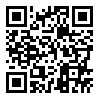مجله رویش روانشناسی از دادن گواهیهای کاغذی معذور است. لطفا تقاضا نکنید. همه گواهی ها در صفحه شخصی کاربران موجود است.
year 12, Issue 12 (winter 2024 2024)
Rooyesh 2024, 12(12): 33-42 |
Back to browse issues page
Download citation:
BibTeX | RIS | EndNote | Medlars | ProCite | Reference Manager | RefWorks
Send citation to:



BibTeX | RIS | EndNote | Medlars | ProCite | Reference Manager | RefWorks
Send citation to:
Soleymani M, Ghadampour E, Abasi M. (2024). The Feasibility of educational package based on academic achievement identity on academic persistence and academic well-being. Rooyesh. 12(12), 33-42.
URL: http://frooyesh.ir/article-1-4730-en.html
URL: http://frooyesh.ir/article-1-4730-en.html
1- Ph.D. Student of Educational Psychology, Department of Psychology, Faculty of Literature and Humanities, Lorestan University, Khorramabad, Iran.
2- Professor, Department of Psychology, Faculty of Literature and Humanities, Lorestan University, Khorramabad, Iran. ,ghadampour.e@lu.ac.ir
3- Assistant Professor, Department of Psychology, Faculty of Literature and Humanities, Lorestan University, Khorramabad, Iran.
2- Professor, Department of Psychology, Faculty of Literature and Humanities, Lorestan University, Khorramabad, Iran. ,
3- Assistant Professor, Department of Psychology, Faculty of Literature and Humanities, Lorestan University, Khorramabad, Iran.
Abstract: (675 Views)
The purpose of this study was to investigate the feasibility of educational packages based on academic achievement identity on academic persistence and academic well-being. The research utilized a semi-experimental design with a pre-test-post-test and a control group, incorporating a follow-up period of two months. The research community comprised all male students of the first secondary school in Qom city in 1400-1401, from whom 60 individuals were purposefully selected as a sample (30 in the experimental group and 30 in the control group) and randomly assigned to two experimental and control groups. The research tools included the Talib et al. Academic Persistence Questionnaire (APQ, 2018) and the Tuominen-Soini et al. Academic Wellbeing Questionnaire (AWBQ, 2012). The analysis method for this research was an analysis of variance with repeated measurements. The findings, after controlling for the pre-test effect, revealed a significant difference in the variables of academic persistence and academic well-being between the two experimental and control groups (P<0.0001). It can be concluded that education based on academic identity, coupled with scientific ability, encourages students to aspire to the most desirable identity, enhances persistence in education, and improves their academic well-being.
Type of Article: Research |
Subject:
Educational Psychology
Received: 2023/07/10 | Accepted: 2023/08/16 | ePublished: 2024/03/10
Received: 2023/07/10 | Accepted: 2023/08/16 | ePublished: 2024/03/10
Send email to the article author
| Rights and permissions | |
 |
This work is licensed under a Creative Commons Attribution-NonCommercial 4.0 International License. |






